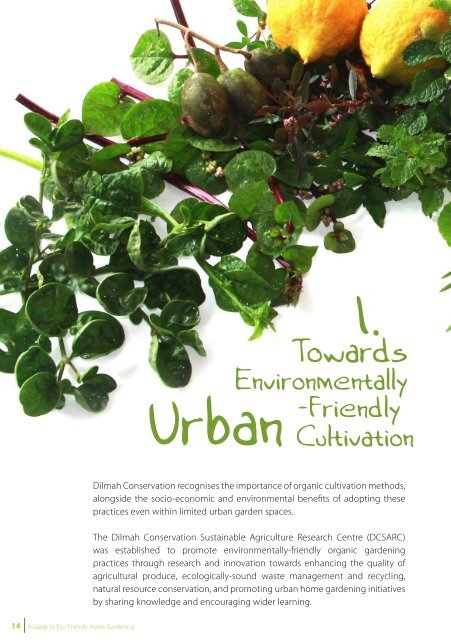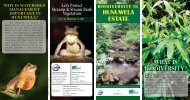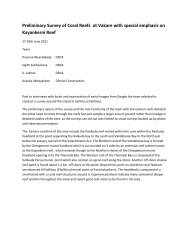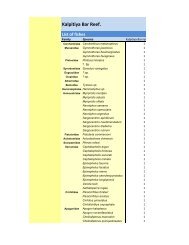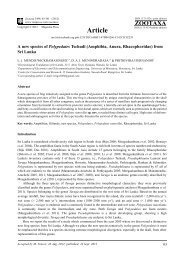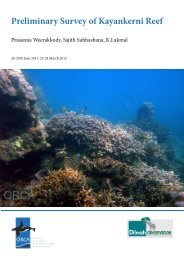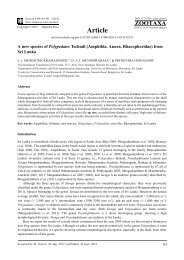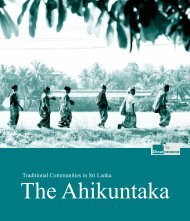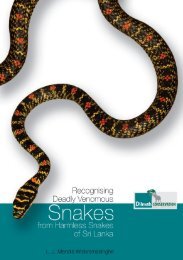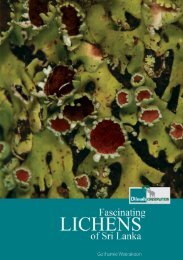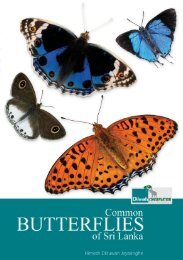A Guide to Eco-Friendly Home Gardening
A Guide to Eco-Friendly Home Gardening
A Guide to Eco-Friendly Home Gardening
You also want an ePaper? Increase the reach of your titles
YUMPU automatically turns print PDFs into web optimized ePapers that Google loves.
14 A <strong>Guide</strong> <strong>to</strong> <strong>Eco</strong>-<strong>Friendly</strong> <strong>Home</strong> <strong>Gardening</strong><br />
1.<br />
Towards<br />
Environmentally<br />
Urban<br />
-<strong>Friendly</strong><br />
Cultivation<br />
Dilmah Conservation recognises the importance of organic cultivation methods,<br />
alongside the socio-economic and environmental benefits of adopting these<br />
practices even within limited urban garden spaces.<br />
The Dilmah Conservation Sustainable Agriculture Research Centre (DCSARC)<br />
was established <strong>to</strong> promote environmentally-friendly organic gardening<br />
practices through research and innovation <strong>to</strong>wards enhancing the quality of<br />
agricultural produce, ecologically-sound waste management and recycling,<br />
natural resource conservation, and promoting urban home gardening initiatives<br />
by sharing knowledge and encouraging wider learning.<br />
Presently, over 100 varieties of fruits, vegetables, and<br />
medicinal plants have been planted at Tikiri Kotuwa and<br />
the dedicated Conservation Park, which form a part of DCSARC.<br />
Aside from conducting research on chemical-free fertiliser,<br />
pest management and non-soil, hydroponic and vertical<br />
agriculture, DCSARC also actively reuses refuse, such as plastic<br />
cans, from Dilmah’s Peliyagoda Fac<strong>to</strong>ry, including wooden pallets,<br />
empty cans, buckets, and tyres <strong>to</strong> develop inventive agricultural <strong>to</strong>ols.<br />
Moreover, DCSARC shares its findings by way of community awareness<br />
programmes on innovative urban gardening methods, which are suited for<br />
limited spaces and also encourage the recycling of household and garden<br />
waste. Through these educational initiatives targeting the urban public, DCSARC<br />
seeks <strong>to</strong> encourage responsible consumption and the wider use of healthy, costeffective<br />
and sustainable practices <strong>to</strong> help contribute <strong>to</strong>wards a household’s<br />
daily fruit and vegetable intake.<br />
A <strong>Guide</strong> <strong>to</strong> <strong>Eco</strong>-<strong>Friendly</strong> <strong>Home</strong> <strong>Gardening</strong> 15


